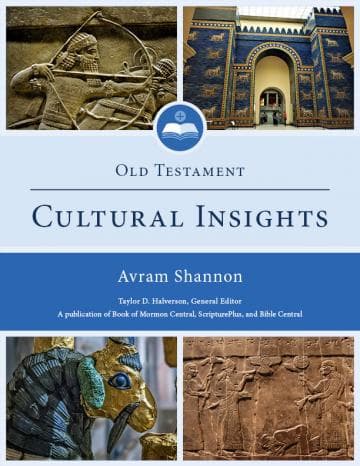Book
71 Chapters

The English name for the book of Genesis comes from a Greek word that means “origin.” The name of this book in Hebrew is Bereshit, which means “in the beginning” and is the first word of the biblical book. This follows naming patterns of some ancient books. For example, the title of the Babylonian epic about the victory of Marduk, Enuma Elish, is taken from the first words of the epic: “When the gods came down.” The title Genesis is a useful one since this book is fundamentally about the origins, or the beginnings, of things. It tells the story of the origin of the world, the creation of humanity, the giving of the Abrahamic covenant, and the origin of Israel. Indeed, one of the purposes of Genesis is to categorize everything into its proper place in laying the foundation for the story of Israel that unfolds in the rest of the Bible.
Genesis can be divided into two main parts: a primeval history that covers the period from the Creation until Abraham (Genesis 1:1–11:26) and a patriarchal history that covers the stories of the matriarchs and patriarchs until the children of Israel went into Egypt, setting the stage for the Exodus (11:27–50:26).
The primeval history describes events in broad strokes but includes narratives about the origin and Fall of humanity (chapter 3), the founding of cities and industry (4:16–24), the Flood (chapters 6–9), and the division of languages and nations (chapters 10–11). In many ways, these accounts are prologues to the story that the biblical authors were really interested in: that of the founding fathers and mothers of Israel. The primeval history constitutes only 20 percent of Genesis despite its describing thousands of years according to its internal narrative.
The patriarchal history includes narrative arcs about Abraham, Sarah, and Hagar (chapters 12–23); Isaac and Rebekah (chapters 24–27); Jacob, Rachel, Leah, Zilpah, and Bilhah (chapters 27–36); and the sons of Jacob, the eponymous ancestors of the twelve tribes (chapters 37–50). These stories are interwoven with those of peoples who were close to the Israelites but were not part of Israel—namely, the Ishmaelites (25:12–18), the Moabites and the Ammonites (19:37–39), and the Edomites (chapter 36). It is important to take note of these related narratives because these nations were part of the story of Israel throughout the Old Testament and beyond. (For example, King Herod in the Gospel of Matthew was an Edomite.)
Book
71 Chapters
Items in the BMC Archive are made publicly available for non-commercial, private use. Inclusion within the BMC Archive does not imply endorsement. Items do not represent the official views of The Church of Jesus Christ of Latter-day Saints or of Book of Mormon Central.